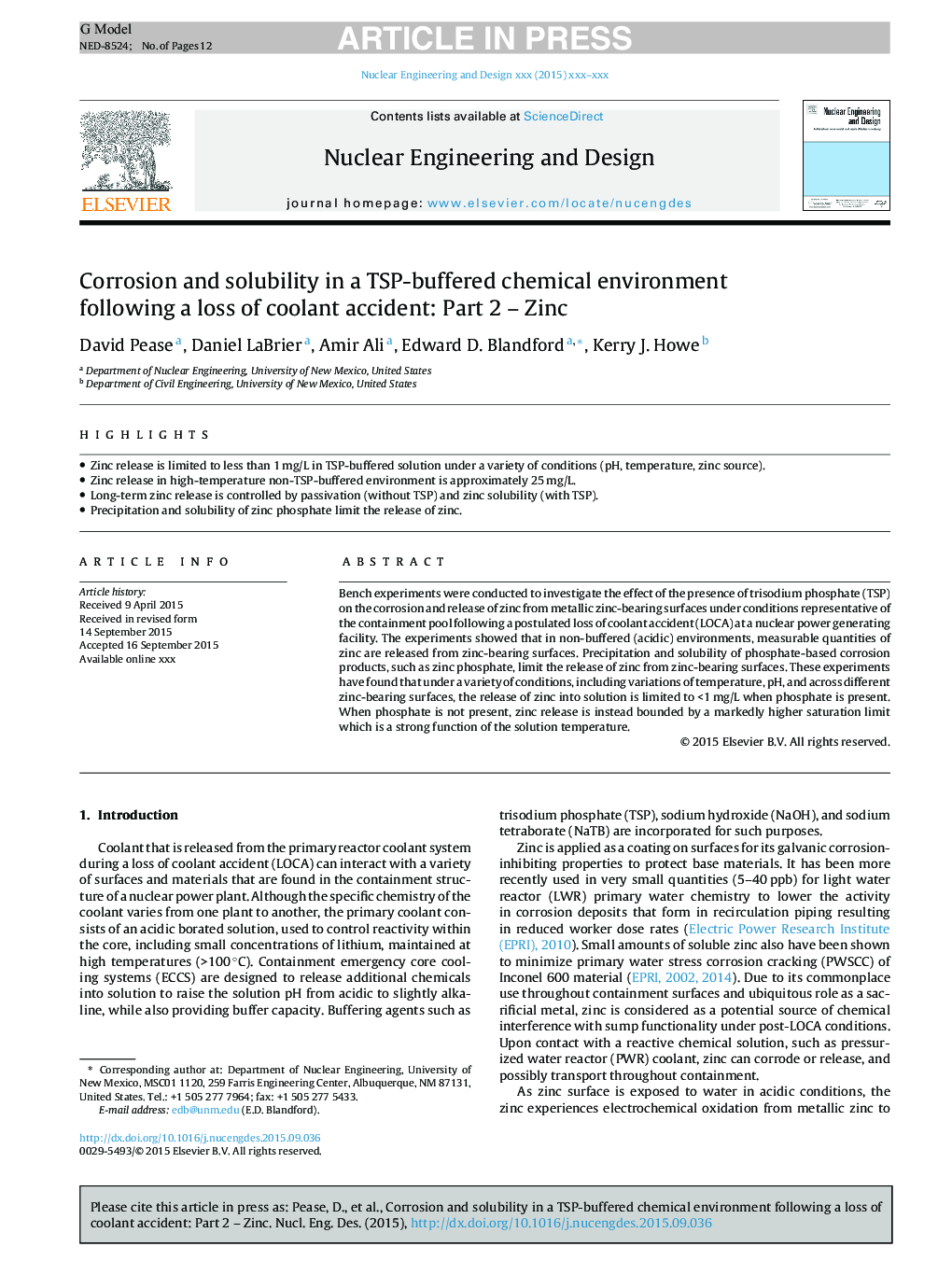| Article ID | Journal | Published Year | Pages | File Type |
|---|---|---|---|---|
| 6760221 | Nuclear Engineering and Design | 2016 | 12 Pages |
Abstract
Bench experiments were conducted to investigate the effect of the presence of trisodium phosphate (TSP) on the corrosion and release of zinc from metallic zinc-bearing surfaces under conditions representative of the containment pool following a postulated loss of coolant accident (LOCA) at a nuclear power generating facility. The experiments showed that in non-buffered (acidic) environments, measurable quantities of zinc are released from zinc-bearing surfaces. Precipitation and solubility of phosphate-based corrosion products, such as zinc phosphate, limit the release of zinc from zinc-bearing surfaces. These experiments have found that under a variety of conditions, including variations of temperature, pH, and across different zinc-bearing surfaces, the release of zinc into solution is limited to <1Â mg/L when phosphate is present. When phosphate is not present, zinc release is instead bounded by a markedly higher saturation limit which is a strong function of the solution temperature.
Related Topics
Physical Sciences and Engineering
Energy
Energy Engineering and Power Technology
Authors
David Pease, Daniel LaBrier, Amir Ali, Edward D. Blandford, Kerry J. Howe,
